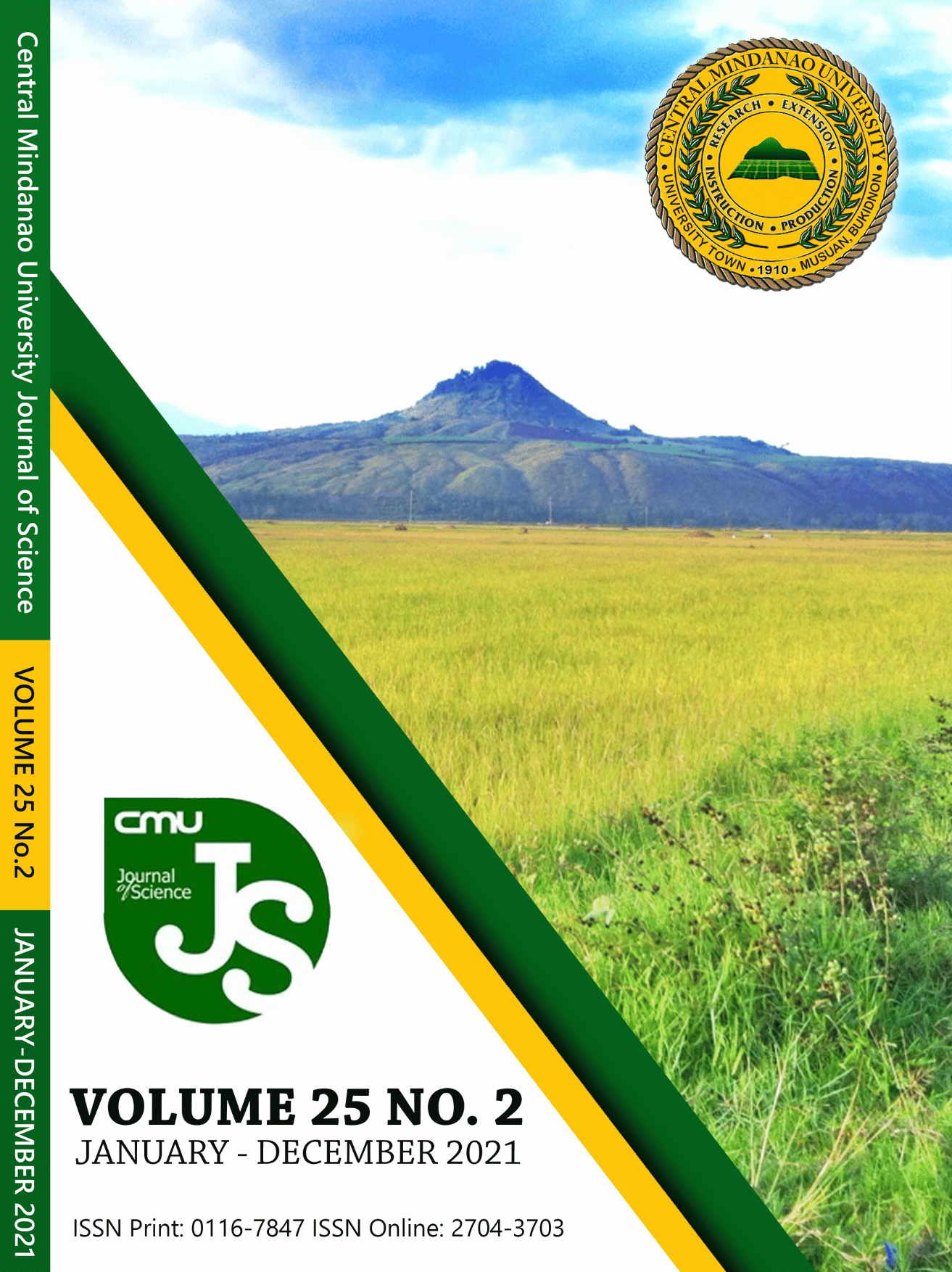Anti-microbial Properties of Selected Plant Leaf Extracts Against Aspergillus Niger (van Tieghem), Pseudomonas Aeruginosa (Schroeter) and Staphylococcus Aureus (Rosenbach)
DOI:
https://doi.org/10.52751/cnfq9322Keywords:
Anti-microbial, Tridax procumbens, Staphylococcus aureus, Pseudomonas aeruginosa, Premna odorata, Petersianthus quadrialatus, Shorea astylosa, Aspergillus nigerAbstract
With growing reports of multidrug-resistant pathogens causing untreatable human infections, the need for new antimicrobial therapies is becoming increasingly important. This study was conducted to investigate the antimicrobial properties of the leaf extracts of Premna odorata Blanco, Petersianthus quadrialatus Merr., Shorea astylosa Foxw., and Tridax procumbens Linn. The medicinal importance of these plants remains understudied despite their abundant distribution and endemism in the Philippines. A disk diffusion assay was utilized to test the antimicrobial properties of T. procumbens leaf extract against Pseudomonas aeruginosa and Staphylococcus aureus. On the one hand, the fungal colony and spore germination assay was used to test P. odorata, P. quadrialatus, and S. astylosa leaf extracts against Aspergillus niger. Different concentrations of leaf extracts were prepared and compared with positive and negative controls. T. procumbens minimally inhibits the growth of P. aeruginosa (10 mm) and S. aureus (10 mm), while S. astylosa leaf extracts revealed the most significant inhibition on colony growth (5.38 mm) and spore germination (15). P. odorata and P. quadrialatus showed the least (28.35 mm; 82.17) and moderate (10.97 mm; 49.5) inhibitory potentials, respectively. The discovery of new antimicrobial compounds from these plant extracts is seen as a potential resolve to the pressing problem of antimicrobial resistance.
Downloads













 LinkedIn
LinkedIn